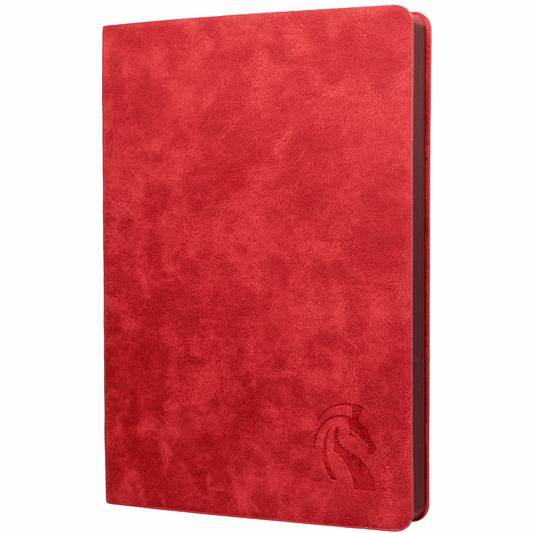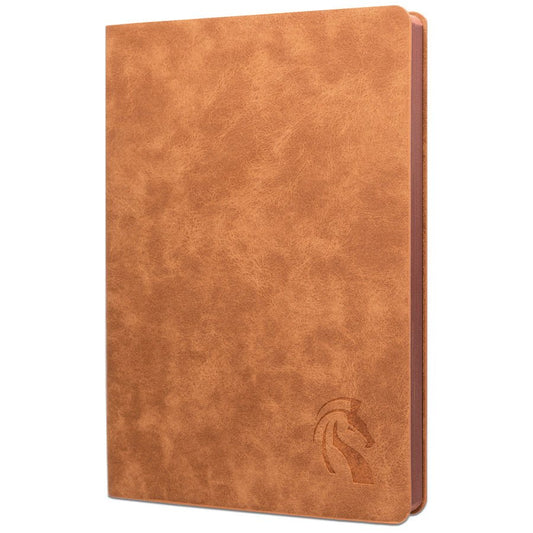
50 Childhood Trauma Journal Prompts can help individuals begin or continue the process of healing by exploring their thoughts and feelings surrounding early life experiences.
Writing about childhood trauma can be deeply therapeutic, offering a safe space to process complex emotions, release past pain, and gain clarity on the impact these experiences have on adult life.
These prompts are crafted to guide you through the delicate process of self-reflection and healing.
Whether you’re starting to confront these memories or have been on your healing journey for some time, these prompts encourage thoughtful introspection.
Journaling allows you to slowly unravel the layers of your past, giving yourself permission to feel, reflect, and heal at your own pace.
Childhood Trauma Journal Prompts: Exploring Early Memories
- Write about one of your earliest childhood memories. What emotions arise when you reflect on this time, and how has this memory shaped your current self?
- Think about a time when you felt scared as a child. What was happening, and how did it impact your sense of safety?
- Write about a childhood memory that still feels unresolved. What emotions are attached to this memory, and what do you wish you could change about it?
- Reflect on a moment from your childhood where you felt misunderstood. How did that experience affect your ability to express yourself as an adult?
- Think about a happy childhood memory. How did that moment contrast with the more difficult parts of your early life, and why is it important to you now?
- Write about a time when you felt alone as a child. What were you longing for, and how does this experience still affect you today?
- Think about a significant event from your childhood that caused emotional pain. How have you carried this experience into adulthood?
- Reflect on how your childhood home felt emotionally. Was it a place of warmth or tension, and how did it influence your emotional development?
- Write about a person who played an important role in your childhood. How did their presence or absence impact your emotional well-being?
- What is one thing you wish you could have told your younger self? How would hearing those words have changed your experience as a child?

Healing from childhood trauma starts with understanding your story. Take your time, reflect on your experiences, and honor your emotions as they arise.
Childhood Trauma Journal Prompts: Processing Painful Emotions
- Write about a time when you felt deeply hurt as a child. How did you process those emotions then, and how do you handle similar feelings now?
- Think about a time when you suppressed your emotions as a child. What emotions were you holding back, and why did you feel you couldn’t express them?
- Write about a moment when you felt abandoned. How did that experience affect your relationships later in life, and how do you cope with those feelings now?
- Describe a time when you felt unloved or unworthy. What was happening, and how has that experience impacted your self-esteem?
- Write about an experience that left you feeling ashamed. How has this memory shaped your sense of self, and what do you need to heal from it?
- Think about an emotion you frequently felt as a child (e.g., fear, sadness, anger). How did you cope with that emotion, and what triggers it in your life today?
- Reflect on a time when you felt invisible as a child. How has that feeling affected your ability to be seen or heard in your adult life?
- Write about how your childhood experiences affected your ability to trust others. What steps can you take now to rebuild that trust?
- Describe a time when you felt overwhelmed by emotions as a child. How did you manage, and how do you manage overwhelming emotions now?
- Think about a moment when you felt helpless as a child. How did that sense of helplessness carry into adulthood, and how can you start to reclaim your power?

Processing painful emotions takes courage. Trust yourself to explore those feelings, knowing that each step brings you closer to healing.
Childhood Trauma Journal Prompts: Reclaiming Your Inner Child
- Write about a time when you felt joy as a child. How can you bring more of that feeling into your life today?
- Think about an activity or hobby you loved as a child but no longer do. Why did it bring you joy, and how can you reconnect with it now?
- Write a letter to your younger self. What do you want your inner child to know, and how can you offer them the love and support they needed?
- Create a list of the things that used to make you smile as a child. How can you bring more of those things into your life now?
- Reflect on a time when your curiosity as a child was encouraged or discouraged. How does that affect your sense of curiosity today?
- Think about a moment when you felt free and adventurous as a child. What did that sense of freedom feel like, and how can you reclaim it now?
- Write about a dream you had as a child. How does it still resonate with you today, and how can you honor that dream as an adult?
- Reflect on how your childhood creativity was nurtured or stifled. How can you reconnect with your creative spirit today?
- Write about the kind of love and attention you needed as a child. How can you give that love and attention to yourself now?
- Think about how your inner child views the world. How can reconnecting with that childlike wonder help you heal and grow?

Reclaiming your inner child is about rediscovering the joy, playfulness, and curiosity that was once yours. Let your inner child lead the way to healing.
Childhood Trauma Journal Prompts: Understanding the Impact of Trauma
- Write about how your childhood trauma has influenced your relationships as an adult. What patterns do you notice, and how can you begin to shift them?
- Reflect on how your childhood experiences have shaped your views on self-worth. How can you start rebuilding a positive sense of self today?
- Think about how your trauma affects your ability to trust. What steps can you take to rebuild trust in yourself and others?
- Write about the ways you’ve coped with childhood trauma over the years. What coping mechanisms have helped, and which ones no longer serve you?
- Think about how your childhood trauma impacts your mental health. How does it show up in your daily life, and what steps can you take to prioritize your healing?
- Reflect on how your trauma has influenced your career choices. How has it affected your sense of purpose, and how can you find fulfillment moving forward?
- Write about how your childhood trauma affects your relationship with your body. How can you work on rebuilding a healthy relationship with yourself physically and emotionally?
- Think about how your trauma affects your sense of safety. How can you create environments where you feel secure and grounded?
- Write about how your childhood trauma impacts your emotions. What triggers intense emotions for you, and how can you manage these feelings in healthier ways?
- Reflect on how your childhood trauma has shaped your worldview. How can you start challenging the limiting beliefs that were formed as a result?

Trauma shapes our perspectives, but healing allows us to transform those perspectives into something empowering and hopeful.
Childhood Trauma Journal Prompts: Moving Forward and Healing
- Write about what healing from childhood trauma looks like for you. What steps are you taking, and how do you feel about your progress so far?
- Think about how you want to feel as you continue your healing journey. What does emotional peace look and feel like to you?
- Write about the boundaries you’re setting to protect your emotional well-being. How are these boundaries helping you heal?
- Reflect on the support systems you have in place as you heal from childhood trauma. Who are the people who lift you up, and how do they contribute to your healing process?
- Create a vision for your future self, one who has healed from childhood trauma. What does their life look like, and how do they navigate the world?
- Write about one small act of self-care you can do every day to support your healing. Why is it important, and how does it make you feel?
- Think about what forgiveness means to you in the context of your trauma. How can forgiving yourself or others support your healing process?
- Write about how you’ve grown since starting your healing journey. What are you proud of, and how does this growth inspire you to keep moving forward?
- Reflect on how you can reclaim your sense of safety and trust in the world. What small steps can you take to feel more grounded and secure?
- Write about the kind of life you want to build moving forward, free from the weight of childhood trauma. What dreams are you ready to pursue?

Healing is a journey, not a destination. Each day brings new opportunities for growth, peace, and the freedom to create a life of joy and purpose.
Conclusion:
Journaling through childhood trauma can be a deeply healing practice, allowing you to process emotions, understand your experiences, and reclaim your sense of self.
These 50 childhood trauma journal prompts are designed to guide you through the complex layers of your past, offering space for reflection, release, and recovery.
Keep writing, keep healing, and trust that with each entry, you are moving closer to a place of peace and self-empowerment.
Read Other Related Journal Prompts
50 Therapeutic Journal Prompts50 Art Therapy Journal Prompts
50 Gratitude Journal Prompts for Kids
50 Journal Prompts for Grief















